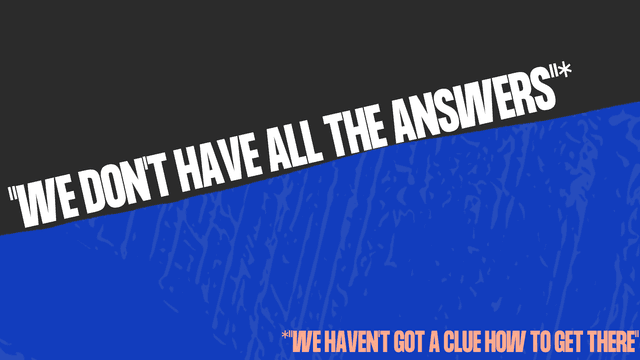While we often use the term in sexualised context, a euphemism is more broadly defined as “a word or phrase used to avoid saying an unpleasant, embarrassing or offensive word.” In a British context, describing a meal as ‘interesting’ is usually a euphemism for ‘it makes me want to vomit’.
If you work in the sustainability sector, you’ll know that it’s awash with acronyms and jargon. In a survey I conducted with Katie Leggett and Beate Triantafilidis last year with 80 sustainability professionals, it revealed that the most disliked buzzword in our sector was in fact - somewhat self-destructively - ‘sustainability’. Yes, buzzwords and jargon can be annoying and often bewildering, but by and large, they’re harmless.
My bigger concern is the euphemisms we’ve become accustomed to using in sustainability communications. Specifically when it comes to talking about commitments.
Let me give you a few examples.

How often have you heard ‘we’re on a journey’ in relation to progress towards a 2030 commitment? I consider this a euphemism as it’s normally used to dress up incremental progress as something more substantive. Perhaps a more fitting metaphor would be ‘We’re on a slow-moving bus, we’re running 15 years late and we’ve got a puncture’.
How many times have you heard ‘We know we’re not perfect’, when ‘imperfection’ is referring to widespread deforestation in a supply chain?
‘We don’t have all the answers’ is another classic, which would be more accurately stated as ‘We haven’t got a clue how we’ll get there’.
Sometimes, I’m not even sure what the euphemism is softening. Having ‘stakeholder dialogues’ feels unnecessarily sanitised, when ‘speaking to people / communities’ is so much clearer. Unless of course you’re treating ‘stakeholders’ unethically, in which case I can see why you might not want to acknowledge them as humans.
I appreciate my argument might sound pedantic, and I am definitely guilty of having used some of these euphemisms in the past, but my point is this: the more euphemistic language we use, the more we distance ourselves from the raw, urgent nature of the problems we face.
As a result, I fear that we won't respond to the problems with the urgency or humanity that’s required.
The solution? Face reality and say it as it is.
